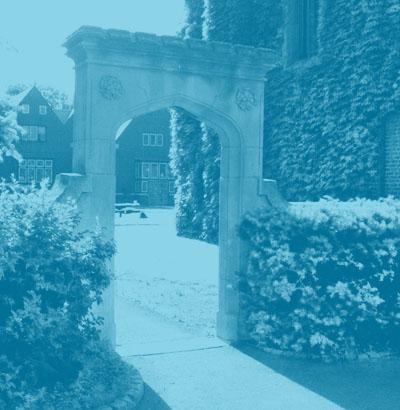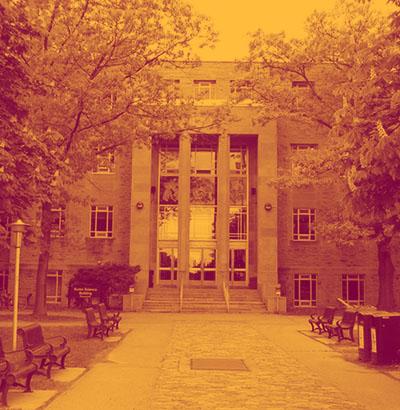The Life Sciences programs have been created for students interested in exploring topics focused upon aspects of human health and well-being. Learning expectations are designed to practice and master specific global competencies required in all post-graduate careers.
Students can apply to enroll in one of 5 different Life Sciences Programs:
Students in any of the four Science Level I Gateways may choose admission into our largest program, Honours Life Sciences. This program encourages students to explore their diverse interests in the fields of Life Sciences including courses in nutrition, epidemiology, behaviour, neurobiology, cellular dynamics, global health and science communication. Please view admission requirements and program requirements.
Students in any of the four Science Level I Gateways may choose admission into our Honours Life Sciences – Origins of Disease (OD) specialization. This interdisciplinary program examines the chemical and physical basis of cell function, disease states, and current research in disease prevention and treatment. OD was created in partnership with the Departments of Chemistry & Chemical Biology and Physics & Astronomy. This program is limited enrolment. Please see admission requirements and program requirements.
Students in any of the four Science Level I Gateways may choose admission into our Honours Life Sciences – Sensory Motor Systems (SMS) specialization. This interdisciplinary program examines the interplay between neural and motor systems in controlling human behaviour and movement. SMS was created in partnership with the Departments of Kinesiology and Psychology, Neuroscience & Behaviour. This program is limited enrolment. Please see admission requirements and program requirements.
Students in Level II of any Honours Life Sciences Program may apply to our Honours Life Sciences – Co-Op program. This is an exciting opportunity to get career-ready experience in a Life Sciences program through two 8 month co-op terms. Admission is competitive and this program is limited enrolment. Please see admission requirements and program requirements.
In this 3-year degree students are invited to explore the majority of Life Sciences courses. Students do not have access to Level IV seminar courses or independent projects. Students may transfer to the Honours program after consultation with the Office of the Associate Dean of Science (Academic). Please see admission requirements and program requirements.
Students in an Honours Life Sciences Program are required to complete 4 core courses:
In this course, students practice skills around hypothesis testing and data analysis. Students are introduced to skills essential to science literacy and numeracy and are invited to practice these skills in small tutorial environments. The theme of the course is Stem Cell Biology.
This hands-on laboratory course explores diverse topics in Human Aging using model organisms and contemporary methodologies. Students are invited to examine the cellular, molecular, physiological and neurological characteristics of aging using state-of-the-art laboratory equipment, and reflect upon what we think about aging in current society. How might our understanding of the mechanisms of aging allow us to prepare our health care and urban planning systems for an increasing large and aging demographic?
Scientific numeracy demands practical understanding of the ways in which information is gathered and presented in graphs, diagrams, charts and tables. The Life Sciences programs require completion of an introductory statistics course to learn and practice methodologies to analyze and present real-world data.
Genetics is the study of genes, genomes, genetic variation and heredity in living organisms. The field of genetics intersects with studies in all life sciences and is essential to understanding the basis of human health. In these courses, students explore contemporary issues around genetic information and the individual’s rights to this information.
In Levels III and IV, students in an Honours Life Sciences program complete courses from the 4 pillars of the Program:
Science Communication, Laboratory Skills, Experiential Learning and Knowledge Transfer
Science communication includes an array of forums for engaging in critical discourse about research and theories in science. It spans communicating to an academic audience in the form of presentations, posters, or funding applications to communicating scientific principles and research to a broader audience. Effective science communication impacts how science is understood and applied. More generally, communication in multiple formats is essential in any post-graduate career.
Students in all Honours Programs are required to complete a minimum of 6 units from Course List A. Please note the specific requirements in the two specializations.
These courses are on Course List A
An understanding of how research is conducted is essential to understanding science itself. In these laboratory courses, students learn basic laboratory skills in addition to how to communicate and interpret research data. Students may choose to complete this requirement in the field of most interest including physiology, molecular biology, cell biology and ecology.
Students in all Honours Programs are required to complete a minimum of 3 units from Course List B. Please note the specific requirements in the two specializations.
These courses are on Course List B
“Tell me and I forget, Teach me and I may remember, Involve me and I learn.” -Benjamin Franklin
Students are encouraged in all of our programs to engage in diverse experiential learning opportunities. This provides students with a chance to apply knowledge and skills learned in the classroom, explore career options and become knowledge creators. Experiential opportunities include community or professional placements (LIFESCI 3EP3 and LIFESCI 4EP6) and research projects on campus (LIFESCI 4A03, LIFESCI 4B09 and LIFESCI 4C12). There are also course-based community engagement opportunities (LIFESCI 3N03 and PSYCH 2NF3). In addition, our collection of peer mentoring courses give you a chance to apply your knowledge in the classroom as a leader and mentor to your fellow students.
Students in all Honours Programs are required to complete a minimum of 3 units from Course List C. Please note that students in the Co-op program are not required to complete courses from Course List C as the co-op term satisfies their experiential requirement.
These courses are on Course List C
In addition to the skills-based requirements indicated above, students in the Honours Life Sciences Program may choose 18 units of electives from the Life Science Course List which includes selected courses from a variety of departments and schools in the Faculty of Science. Please see the full Life Science Course List . Please be aware of prerequisite requirements.
The Life Sciences seminar ballot process ensures all final year Honours Life Sciences students meet their program requirements from Knowledge Transfer/Seminar Experience (Course List E)
Honours Life Science students must complete at least 3 units from Course List E.
Eligible students will receive an email from the School of Interdisciplinary Science to their McMaster email account prompting them to participate in a preferential seminar ranking process in March. Students must use the ballot link in that email to complete and submit a ballot by the end of March (dates are subject to change) to indicate their preference of a seminar. The rank-matching functionality aims to maximize the number of students getting their top choice of seminar. The allotment is performed after the application closes.
Students will be informed of the outcome, and the seminar for which they have initial permission to enroll, in June. Outcomes will be communicated to your McMaster email.
Level IV Research Seminar topics may change from year to year. Research Seminar topics and descriptions are available on in the Academic Calendar, Honours Life Science Course list E.
List of Level IV LIFESCI Seminar Courses (2024/2025)
Life Sciences Level IV Ballot FAQ (2024)
Town Hall – Level IV LIFESCI Seminar Ballot Presentation (2024)
The pre-registration ballot will open Monday March 18th, 2024 for 4 weeks, and will close Friday April 12th, 2024 at 2:00 PM EDT. The ballot will not be available after this deadline; rankings will not be accepted via any other method (e.g email, face to face meeting, phone requests etc).
Students in a Life Sciences Program may choose elective courses from across campus. Please be aware of prerequisite requirements.




